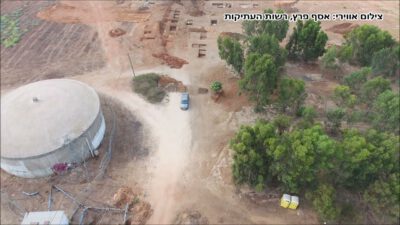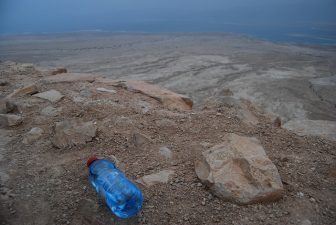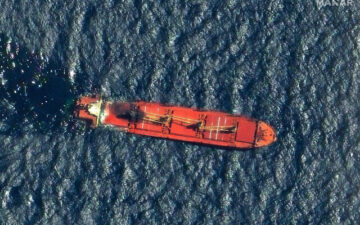
High water demand is putting pressure on scarce water resources and destroying the agricultural sector in Gaza
Water shortages are a widespread and common problem for the people of the Gaza Strip, between Israel and Egypt. There just isn’t enough water for the growing population and an Israeli blockade which limits imports and exports means the locals can do little to alleviate the situation. I recently wrote about the stunning water mural project in the Gaza Strip which highlights the serious water shortages in the area in the hope of encouraging political action. The European Union also recently pledged 10 million euros for a desalination plant that would serve Khan Yunis and Rafah. Until these projects can have the desired effect, however, farming on the land in Gaza has become almost impossible.
In 2010, Abu Mohammed who lives in Khan Yunis in Gaza decided to cut down his own lemon trees. Water shortages meant he couldn’t care for them properly and the high salinity adversely affected the quality of the fruit. The 62 year old had worked the two dunums of land his family owned all his life – first with his own father and then with his wife, sons and daughters and grandchildren. “Until eight years ago we were able to buy water from a source nearby. However, that became too expensive,” he told the Palestinian Centre for Human Rights which is based in Gaza.
In 2003, they family decided to dig their own water well. “About four years after digging the well I noticed an increasing salinity in the water coming from our well,” says Abu Mohammed. “The plants deteriorated, as did the harvests. We used to plant vegetables on the land for our own consumption but since they only received salty water, these crops have stopped growing. Since 2003 we were growing lemon trees. When the salinity in the well water rose, the trees turned yellow and produced only small lemons with a salty taste.”
 The coastal water aquifer is the main source of irrigation water in Gaza. Due to the lack of water resources, over extraction of water from the aquifer has led to seawater and saline water intrusion. This along with leaked sewage means the quality of the water and soil is compromised- this makes farming is more and more difficult. There are approximately 70,000 people working in the agricultural sector in the Gaza Strip.
The coastal water aquifer is the main source of irrigation water in Gaza. Due to the lack of water resources, over extraction of water from the aquifer has led to seawater and saline water intrusion. This along with leaked sewage means the quality of the water and soil is compromised- this makes farming is more and more difficult. There are approximately 70,000 people working in the agricultural sector in the Gaza Strip.
Advocacy group EWASH has stated; “In the past, agricultural production has ensured household food security for the Gazan population as well as contributed to economic security. Currently, agriculture in the Gaza Strip is barely viable.”
Images via Palestinian Centre for Human Rights.
PCHR is a is a non-profit company, dedicated to protecting human rights, promoting the rule of law and upholding democratic principles in the Occupied Palestinian Territory (OPT). It holds Special Consultative Status with the Economic and Social Council (ECOSOC) of the United Nations.
For more on the environment in Gaza see:
Gaza’s New €10 Million Desalination Plant
The Stunning Water Mural of Gaza (PHOTOS)
Gaza’s Getting 20 Zero-Emissions Eco Schools




Those “powers that be” deliberately encourage a growing population on that postage stamp territory because they hate Israel. So that makes some sort of environmental disaster almost inevitable.
There are other sides to the story as well with Israel trying to help Gaza create its own wastewater treatment plants. I have interviewed parties connected to the UN brokering the creation of such plants, where greywater can be used for agri for instance, but political factions in Gaza don’t let the mayor of the city cooperate with the “enemy”. The problem is very complex, especially when you have a society in Gaza run by force, fear and in some cases brutal violence. It’s not that outsiders haven’t tried to help Gaza. But at some point Gazans too need to collectively decide to help themselves. Again, when you can lose your life for standing up against the powers that be, it’s pretty hard for the individual to make any real change. It’s a sad situation, and I hope that 2012 will bring better resolutions between the people in the region.
Such a shame. I was in OPT some while ago on similar projects and with a little bit of clever (green) engineering and some good will, all those water & energy related problems can easily be solved. Solar powered desalination, sub surface irrigation using water storing polymers, all this is readily available. Tried and tested and ready to go.